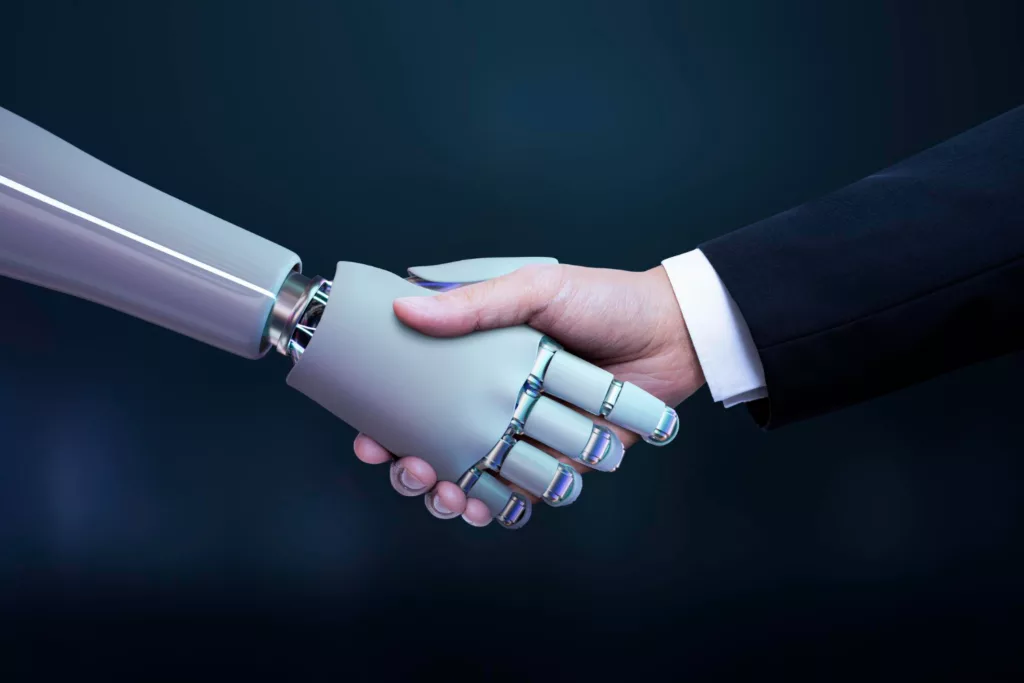The world of recruitment has undergone a significant transformation with the integration of Artificial Intelligence (AI) and Machine Learning (ML) technologies. AI-powered recruitment tools have emerged as game-changers for organizations seeking to streamline their hiring processes, identify top talents efficiently, and reduce biases in decision-making. In this article, we will explore how AI and ML are revolutionizing recruitment, their benefits, the challenges that come with this cutting-edge approach, and the ethical implications to consider.
The Rise of AI in Recruitment

Gone are the days of sifting through stacks of resumes manually. With the rise of AI in recruitment, companies are leveraging advanced technologies to make data-driven and informed hiring decisions. AI-powered recruitment tools can analyze vast amounts of applicant data, providing invaluable insights to recruiters and HR professionals.
Understanding AI and ML in Hiring
How AI Enhances Candidate Sourcing
AI-driven candidate sourcing tools can comb through online platforms, social media, and professional networks to identify potential candidates with the right skills and qualifications. This accelerates the talent acquisition process and expands the pool of candidates beyond traditional channels.
Leveraging ML for Resume Screening
Machine Learning algorithms enable AI to analyze resumes, cover letters, and application data. These algorithms can be trained to recognize keywords, skills, and experiences that match specific job requirements, saving recruiters valuable time during the initial screening process.
Conducting AI-Driven Interviews
AI-powered interview tools are becoming more prevalent, allowing organizations to conduct automated interviews with candidates. These tools analyze candidates’ responses, vocal tone, and body language to provide insights into their suitability for the role.
Benefits of AI in the Hiring Process
Improved Efficiency and Time Savings
AI streamlines recruitment workflows, automating repetitive tasks and reducing manual efforts. This efficiency leads to faster hiring cycles and enables organizations to secure top talents before competitors.
Enhanced Candidate Experience
Through AI-driven interactions, candidates can receive personalized feedback and updates throughout the hiring process. This improved candidate experience positively impacts employer branding and fosters a positive perception of the company.
Minimizing Bias and Increasing Diversity
AI and ML technologies have the potential to reduce unconscious biases in hiring decisions. By focusing solely on candidate qualifications and skills, AI can help mitigate the impact of gender, ethnicity, or other demographic factors in the hiring process, leading to increased diversity within the workforce.
Challenges and Ethical Considerations
Addressing Algorithmic Bias
AI algorithms are only as unbiased as the data they are trained on. To prevent algorithmic bias, it is crucial to regularly audit and refine the training data, ensuring fairness and inclusivity.
Ensuring Data Privacy and Security
As AI recruitment tools handle sensitive candidate data, organizations must prioritize data privacy and security to protect applicants’ personal information.
Balancing AI and Human Interaction
While AI can expedite the hiring process, it is essential to strike a balance between automation and human interaction. Candidates may still desire personal connections and communication with hiring managers.
The Impact on Human Recruiters
AI as a Complement to Human Recruiters
AI does not replace human recruiters but rather empowers them with data-driven insights, allowing them to focus on relationship-building and strategic decision-making.
Developing New Skill Sets for HR Professionals
As AI becomes more prevalent in recruitment, HR professionals must develop new skill sets, including data analysis, AI integration, and ethical considerations.
AI Recruitment Tools: Vendor Landscape
Key Players in the AI Recruitment Industry
Several companies offer AI recruitment tools, each with unique features and capabilities. Understanding the vendor landscape can help organizations choose the best solution for their specific needs.
Comparing Features and Capabilities
Organizations should evaluate AI recruitment tools based on their ability to integrate with existing systems, user-friendliness, performance metrics, and compliance with regulations.
Data-Driven Decision Making in Recruitment
Analyzing Performance Metrics
AI enables HR professionals to track and analyze performance metrics related to the hiring process, allowing for continuous improvement and data-driven decision-making.
Improving Hiring Outcomes through Data Insights
Data insights derived from AI recruitment tools can inform strategic talent acquisition initiatives, leading to better hiring outcomes and workforce planning.
AI and Onboarding: Setting Employees Up for Success
Personalizing Onboarding Processes
AI can personalize onboarding experiences for new hires, ensuring a smoother transition and higher employee satisfaction.
Predictive Onboarding for Retention
By using AI to predict employee fit and engagement, organizations can proactively address potential challenges and increase employee retention.
Navigating Legal and Regulatory Compliance
Ensuring Fairness and Equal Opportunity
AI recruitment tools must comply with anti-discrimination laws and ensure fairness and equal opportunity for all candidates.
Compliance with Data Protection Laws
Organizations using AI in recruitment must adhere to data protection regulations to safeguard candidate privacy and confidentiality.
The Future of AI in Recruitment

AI-Powered Talent Management
AI will extend beyond recruitment to encompass talent management, including employee development, performance evaluation, and succession planning.
Embracing a Culture of Innovation
Organizations embracing AI in recruitment must foster a culture of innovation, adaptability, and continuous learning to stay at the forefront of the rapidly evolving HR landscape.
Conclusion
AI and ML have undoubtedly revolutionized the recruitment landscape, offering unparalleled efficiency, improved candidate experiences, and the potential to address biases in hiring decisions. As organizations continue to embrace AI-powered recruitment tools, they must remain vigilant about ethical considerations, data privacy, the role of human recruiters, and the ongoing evolution of the HR profession.
Frequently Asked Questions
Answer: AI can make data-driven predictions about candidate suitability, but long-term employee success depends on various factors and cannot be guaranteed by AI alone
Answer: AI-driven interviews can provide valuable insights, but in-person interviews remain essential for assessing interpersonal skills and cultural fit.
Answer: No, AI recruitment tools are scalable and can benefit businesses of all sizes, helping them find the right talent efficiently.
Answer: AI algorithms can be adapted to recognize diverse experiences and skills, enabling them to consider non-traditional candidates fairly.
Answer: While AI enhances efficiency, human recruiters bring empathy, intuition, and cultural fit assessment that AI cannot fully replicate.



Leave a Reply